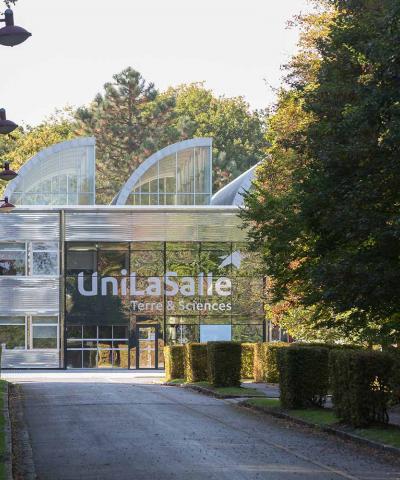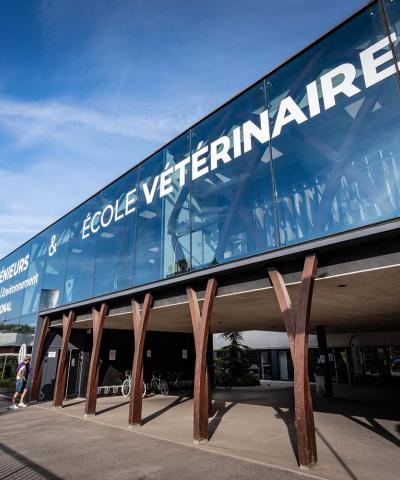The sustainability of natural resources - soil, water and biodiversity - associated with agricultural production.
The challenges of natural resource management in agroecosystems
This pathway is in line with current issues linked to the integrated protection of natural resources and the development of ecosystem services in agroecosystems. At different spatial scales, it focuses on :
- understanding the processes and interactions within agroecosystems that govern the sustainability of natural resources, from the rhizosphere to the watershed;
- Studying the effects of different management practices on natural resources, and implementing these practices with a view to achieving the multifunctionality of agroecosystems;
- Characterization and spatialization of ecosystem services provided by agroecosystems, using numerical and economic tools.
Course details
Agroecology major: Processes at different scales
The aim of this major is to master the processes and interactions within agroecosystems governing the sustainability of natural resources (soil, water and biodiversity) from the rhizosphere to the watershed scale.
Minors
Each semester includes 2 blocks dedicated to minors, corresponding to 54 hours of complementary teaching, enabling students to complete their training in a related field.
Several minors are offered on the Rouen campus, some of which require on-site travel (others can be taken by distance learning).
Some examples of minors
Block 1: Agroecological pest management / Silviculture and forest management: Knowledge of forest environments, site typology and silvicultural history / Sustainable weed management / Global Environmental Issues / Identification of Geo, Bio Energies (Label Géo-bio énérgies) / Water Resources, Polluted Sites and Soils...
Block 2: Digital cartography / Conducting an Environmental Authorization Application / Water and nutrient management / Mindful, Nature Inspired and Regenerative Entrepreneurship - Exploring the concepts / Economic models / Digital transition / Alternative and connected agricultures...
Major Management of natural ressources
The objectives of this major are to study the effects of different management practices on natural resources, and to apply these practices with a view to the multifunctionality of agroecosystems.
Minors
Each semester includes 2 blocks dedicated to minors, corresponding to 54 hours of complementary teaching, enabling students to complete their training in a related field.
Several minors are offered on the Rouen or Rennes campuses, some of which require on-site travel (others can be taken by distance learning).
Some examples of minors
Block 1: Bioindicators for soils / Advanced spatial analysis / Risk management in agriculture / Energy sustainability in farms / Crop protection, product innovation and genetic levers...
Block 2: Conservation and/or organic farming / Spring field diagnostics / Circular carbon economy: energy mixes, PCAET and local wood industries / Entomology (pests and crop auxiliaries) / Innovation, Carbon neutrality and Territories (Label Géo-bio énérgies) / Cropping systems for transitions...
In semester 9, you can choose the path you want to follow, from :
- the main major of the Natural Resource Management in Agroecosystems pathway, which takes a more in-depth look at this field: Multidisciplinary Evaluation of Ecosystem Services (Beauvais campus)
- one or more opening majors, designed to broaden your skills in another field:
- Agriculture and society (Beauvais campus)
- Regional projects: Coordination and animation (Beauvais campus)
- Sustainable Agri-Food systems in the word (Rouen campus)
- Intrapreneurship, entrepreneurship and innovation (Beauvais campus)
- a semester, a double degree or a degree-granting stay in France or abroad (from 12 to 18 months for a double degree or a degree-granting stay)
The final project is based on an in-company work placement or research placement for students, or on the long period spent in a company for apprentices.
A final dissertation is written and presented orally.
What are the career options after completing the Natural Resource Management in Agroecosystems course?
The Natural Resource Management in Agroecosystems pathway enables you to work in resource management, the agri-environment, agricultural consultancy and research.
Some professions
-
Agronomy/environment project manager
-
Project engineer in runoff and soil erosion management
-
Agroresources consultant
- Design engineer in methanization
They can also pursue research by obtaining a doctorate.
They welcome our engineers
CHAMBRE D’AGRICULTURE DE L’OISE, LIOSE - BUREAU D’ÉTUDE EN INGÉNIERIE ENVIRONNEMENTALE, INRAE - INSTITUT NATIONAL DE RECHERCHE POUR L’AGRICULTURE, L’ALIMENTATION ET L’ENVIRONNEMENT, BIOTOPE – BUREAU D’ÉTUDE EN ÉCOLOGIE ET AMÉNAGEMENT DU TERRITOIRE, APAD – ASSOCIATION POUR LA PROMOTION D’UNE AGRICULTURE DURABLE




